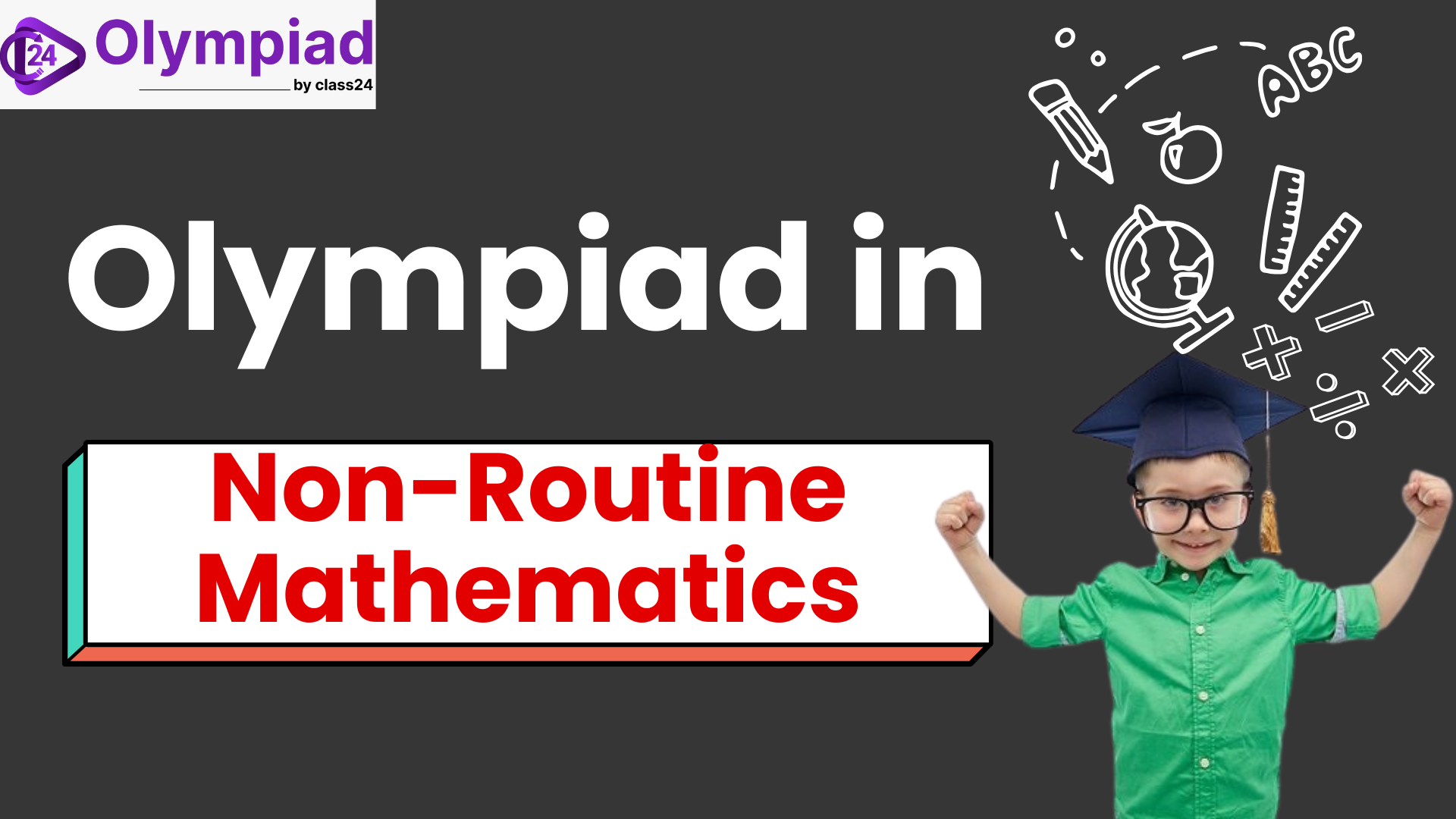
Students who take part in Math Olympiads specializing in non-routine challenges are encouraged to use their creativity and tackle extremely hard Non-standard Maths Olympiad questions, different from what they study in textbooks. Since these competitions bring about innovative solutions, they are great for practicing problem-solving skills. Participating in the Non-routine Maths Olympiad may help a student secure scholarships, enroll in advanced classes, and prepare for successful STEM careers. This guide provides information on Olympiads, along with suggestions for Non-routine Maths Olympiad preparation and tips to help you succeed in them.
Students in the Non-Routine Mathematics Olympiad can train their problem-solving skills by attempting hard and different math problems. It promotes critical thinking, inspires new ideas, and supports determination, allowing those who join to gain math knowledge and prepare for careers and further education in the STEM field. You can learn about the different math olympiads, their style, what you achieve, and guidance on improving your performance, regardless of whether you are new or an expert.
| Key Aspect | Details |
|---|---|
| Purpose | Develop advanced problem-solving and logical thinking skills |
| Problem Type | Challenging, creative, non-routine math problems |
| Benefits | Builds a strong math foundation, encourages innovation |
| Audience | Beginners to advanced math enthusiasts |
| Career Impact | Prepares for higher academics and STEM careers |
| Guide Coverage | Types, structure, benefits, and preparation strategies |
Non-standard Mathematics contests can be held in schools and even as international competitions such as the International Mathematical Olympiad (IMO). Participants in these Olympiads are expected to solve Non-standard Maths Olympiad questions that use creative thinking, as opposed to basic calculations. Most students participate in regional Olympiads, national-level contests, and math competitions that cater to certain age groups and abilities. Valuing the number of Olympiads on offer prepares students to select the ones they are best suited for and use their time wisely.
| Olympiad Type | Description | Target Group |
|---|---|---|
| School-level Olympiads | Introductory contests with moderate difficulty | Beginners and younger students |
| Regional Olympiads | State or district-level competitions with more complex problems | Intermediate students |
| National Olympiads | Countrywide contests featuring challenging non-routine problems | Advanced students |
| International Olympiads (e.g., IMO) | Prestigious global competitions with highly complex problems | Top-performing students worldwide |
Being part of Non-routine Maths Olympiad supports learning and offers help to many individuals. It largely boosts a person’s ability to use their intellect, address challenges well, and use reasoning in all areas of life. By participating in these contests, students learn to cope well with difficulties and manage their time. Also, being successful in math Olympiads often leads to academic merit and the chance to attend advanced classes. In general, participating in non-routine math contests improves one’s interest in mathematics and prepares them for doing well in STEM courses and exams.
| Benefit | Description |
|---|---|
| Critical Thinking | Enhances the ability to analyze and solve complex problems |
| Problem-Solving Skills | Develops creative and logical approaches to unfamiliar questions |
| Confidence and Perseverance | Builds resilience and self-assurance under pressure |
| Academic & Career Advantages | Opens opportunities for scholarships, advanced courses, and recognition |
| Time Management | Improves the ability to manage time efficiently during exams |
| Passion for Mathematics | Fosters deeper interest and engagement with the subject |
To succeed in an Olympiad, you should focus on spotting similarities within problems, practicing daily, and mastering the basics. To start, get quality study sources such as past papers, books specialized for these questions, and online resources that focus on unusual Non-standard Maths Olympiad questions. Regular use of online mock tests improves your ability and accuracy over time. Study groups and coaching classes help by offering advice and an introduction to several ways of solving math problems. It is also essential to look back at your errors and gain experience so you feel prepared for the competition. Here is the Non-routine Maths Olympiad preparation and Tips:
When joining Non-Routine Mathematics Olympiads, check the qualifications, decide on suitable competitions, and arrange a well-organized plan for preparing. Begin by checking the Olympiads run in your school, by the region or country, and internationally, so you can find one at the right level for you. Make your registration as early as possible and meet each requirement. Begin by reviewing what your strengths and weaknesses are and schedule enough time each day to practice, lear,n and rest. Motivating yourself and regularly checking how far you have come will ensure success.
Being part of Olympiad competitions in mathematics not only teaches math, but also prepares you for various challenges and situations in life. If students use the correct strategies, practice regularly and fully understand how competitions are run, they will be able to solve tough problems. Mathematics Olympiads give you a great opportunity to strengthen your skills or prepare for advanced careers. Be determined, accept new challenges and rely on this document to improve in non-routine math competitions.
The Non-Routine Mathematics Olympiad is meant to test students’ abilities with challenging mathematical problems. In contrast to routine work, using non-routine math means a person must solve problems imaginatively, think logically, and plan carefully. Taking part in such olympiads improves math skills, which are vital for doing well in school. If you have only started learning math or are a veteran in the field, this guide can assist you in preparing for the Non-Routine Mathematics Olympiad.




Leave a Comment